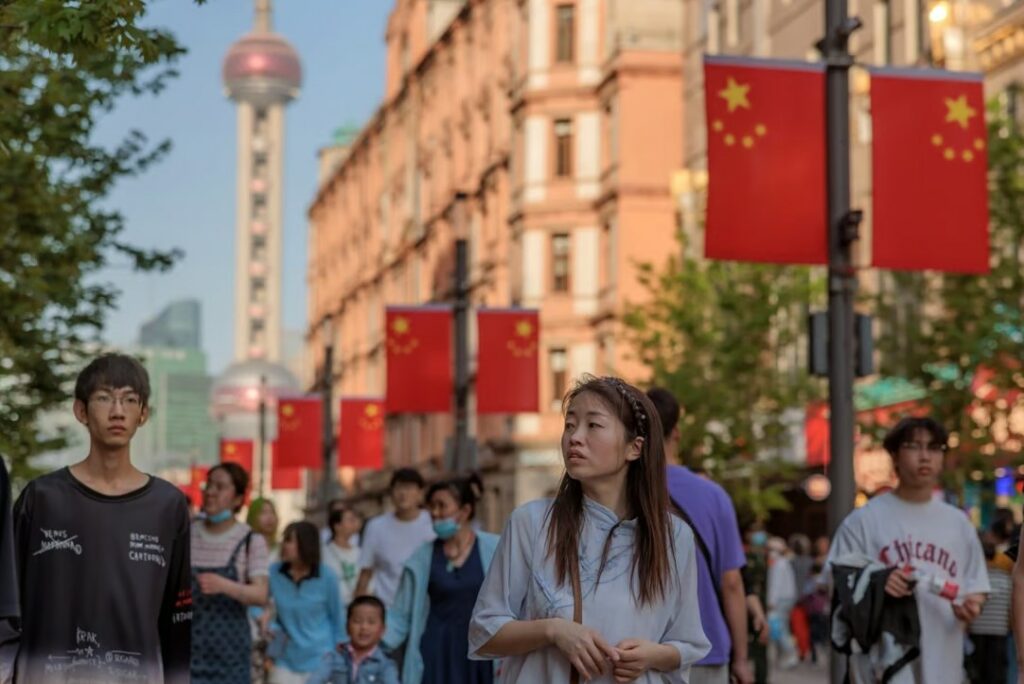
The Ministry of Public Security says the changes are meant to encourage the free movement of people and information. Photo: EPA-EFE
China will relax a wide range of social controls, including visas on arrival for more overseas businesspeople, as it tries to revive its sputtering post-pandemic economy.
The guidelines released by the Ministry of Public Security on Thursday are the latest in a series of far-reaching policy adjustments in recent weeks signaling Beijing’s all-out efforts to put the world’s No 2 economy on a surer footing.
In the 26-point package, the ministry said it would also loosen the household registration system to help secure supply chains and encourage job creation.
In addition, the guidelines commit authorities to making a range of government services more accessible across jurisdictions, particularly in the Guangdong-Hong Kong-Macau Greater Bay Area.
He Wenlin, the ministry’s deputy head of research, said the changes were designed to promote the “free movement” of people, vehicles, information and data, and officials would strive to turn into guidelines into action by the end of this month.
Premier Li Qiang plays up China’s economic prospects at World Economic Forum’s ‘Summer Davos’
A central plant of the package is for authorities to lower the bar for individuals to obtain an urban hukou, or household registration, to enable more skilled rural residents to live and work in cities.
The ministry said cities that had the capacity to do so should adopt the same standards for all hukou applications.
At present, the much-criticised decades-old rigid distinction between urban and rural dwellers limits the movement of the population.
Many experts have said the system denies migrant workers fair access to social services and deters them from spending more.
Spending by the country’s 1.4 billion consumers is key to the central government’s efforts to foster economic growth as its population shrinks and the country confronts an increasingly unfavourable geopolitical climate.
In addition, the ministry will make it easier for overseas business travellers to apply for landing visas, including those wanting to visit China for business meetings, exhibitions or investment but are unable to secure the permission before their trip.
Previously, such applications could only be made on “emergency” grounds.
After entry, frequent travellers will be able to upgrade their on-arrival visa to a multiple-entry one valid for up to three years.
Jia Tongbin, from the National Immigration Administration, said the changes were urgently needed and in the interests of stable industrial and supply chains.
“The move … will help domestic firms seize opportunities, secure orders, expand in international markets and gain an edge in a new revolution of industry,” Jia said.
Foreign nationals would also no longer have to surrender their passports when applying for residence permits in China, a change that Jia said would benefit at least 700,000 visitors.
Jens Eskelund, president of the European Union Chamber of Commerce in China, said the new visa measures were “a welcome step in the right direction” and, if realised in a timely manner, would address some inefficiencies experienced by the foreign business community.
“These measures by themselves will not be sufficient to restore business travel to pre-pandemic levels, nor to restore China’s attractiveness as a destination for foreign talent,” Eskelund said.
“For this to happen, other issues related to the business environment and general conditions for foreign companies – including the lack of transparency and predictability of China’s policy environment – will also need to be addressed.”
Peng Peng, executive chairman of the Guangdong Society of Reform, a think tank affiliated with the provincial government, agreed, saying that while the 26-point package would help build a better business environment, it was not a “sufficient condition” for economic growth.
“While facilitating residency, visas and residence permits can certainly make it easier for people to move around, it doesn’t necessarily guarantee profitability for everyone involved,” he said.
China’s leadership has made the uneven economic recovery the focus of its attention in the last month, after disappointing growth in the second quarter.
Aiming to stabilise foreign investment and trade during the second half of the year, the Politburo, the Communist Party’s top decision-making body said in July that China would step up its economic policy adjustment to boost domestic demand, increase confidence and defuse risks while easing pressure on the property sector.
Then two weeks ago, the central government issued a 31-point plan to build back the country’s private economy “bigger, better and stronger”, commitments that had been limited to the state-owned sector.
Earlier this week, the National Development and Reform Commission, the country’s top economic planning agency, also released a 20-point plan to restore and expand consumer spending.
The NDRC, joined by the Ministry of Finance, the central bank and the tax administration are expected to unveil further support on Friday.
The package from the Ministry of Public Security also includes steps to boost spending on consumer goods such as electric and second-hand cars, to relax rules on driving licence exams and to enable pilot programmes to set up security service companies.
In addition, the ministry will encourage mutual recognition of services such as public security, household registration, traffic management, and immigration within regions such as the Beijing-Tianjin-Hebei area, the Yangtze River Delta, and the Greater Bay Area.
Ding Shuang, chief Greater China economist at Standard Chartered Bank, said the package was a part of a long-term plan to stimulate the Chinese economy.
The measures might not yield immediate results but an intensive array of recent policy moves would benefit public sentiment, he said.
“At some point, as the market consistently receives news of [policy] easing, it might shift people’s expectations and gradually bolster market confidence,” he said.
Additional reporting by Mia Nulimaimaiti

Orange Wang covers the Chinese macroeconomy, and has many years of experience with China’s monetary and fiscal policy moves. He also covered global market and financial news for a long time, with a particular focus on new technologies and their influences on economic growth and society. Before joining the South China Morning Post, Orange worked as a Shanghai Correspondent for ET Net, a Hong Kong financial news agency.
SOURCE: South China Morning Post

